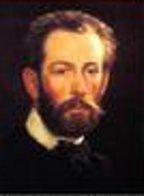A Quote by David Hume
All knowledge resolves itself into probability. ... In every judgment, which we can form concerning probability, as well as concerning knowledge, we ought always to correct the first judgment deriv'd from the nature of the object, by another judgment, deriv'd from the nature of the understanding.
Related Quotes
It follows that the word probability, in its mathematical acceptance, has reference to the state of our knowledge of the circumstances under which an event may happen or fail. With the degree of information we possess concerning the circumstances of an event, the reason we have to think that it will occur, or, to use a single term, our expectation of it will vary. Probability is the expectation founded upon partial knowledge.
I am convinced that it is impossible to expound the methods of induction in a sound manner, without resting them upon the theory of probability. Perfect knowledge alone can give certainty, and in nature perfect knowledge would be infinite knowledge, which is clearly beyond our capacities. We have, therefore, to content ourselves with partial knowledge - knowledge mingled with ignorance, producing doubt.
But if men would give heed to the nature of substance they would doubt less concerning the Proposition that Existence appertains to the nature of substance: rather they would reckon it an axiom above all others, and hold it among common opinions. For then by substance they would understand that which is in itself, and through itself is conceived, or rather that whose knowledge does not depend on the knowledge of any other thing.
Human judgment of human actions is true and void , that is to say, first true and then void.... The judgment of the word is true, the judgment in itself is void.... Only he who is a party can really judge, but as a party he cannot judge. Hence it follows that there is no possibility of judgment in the world, only a glimmer of it.
The percept is the reality. It is not in propositional form. But the most immediate judgment concerning it is abstract. It is therefore essentially unlike the reality, although it must be accepted as true to that reality. Its truth consists in the fact that it is impossible to correct it, and in the fact that it only professes to consider one aspect of the percept.
The main object of the work was to present such a survey of the advances already made in physical knowledge, and of the mode in which they have been made, as might serve as a real and firm basis for our speculations concerning the progress of human knowledge, and the processes by which sciences are formed.







































